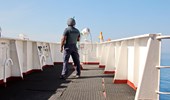Insurers see incidents and calamities changing sharply in nature and scope. In the Netherlands, too, a terrorist attack is a real idea. Insurers have knowledge, procedures and tools to act after a calamity. The industry can eliminate financial risks of large-scale calamities and organize damage repair.
Backgrounds: calamities
Terrorism, small molestation (such as riots) and large molestation such as (domestic) riots and riots are close to each other: one may lead to another. In the event of damage, the difference is sometimes difficult to determine. What started as a small molestation can lead to large molest. That is why it is not always immediately possible to make statements about this that apply to every situation.
Molest
Molest are large-scale violent calamities caused by human activity. War and other large-scale calamities are often excluded from coverage because of the cumulative risk and the possible collapse of insurers (financial stability). Some forms of this are therefore regulated by law.
A non-life insurer with its registered office in the Netherlands is prohibited from insuring damage caused by or arising from armed conflict, civil war, insurrection, domestic unrest, riots or mutiny that occur in the Netherlands. In marine, transport, aviation and travel insurance, it is permitted to insure risks of molestation in the generally customary molestation clauses as long as de Nederlandsche Bank has not raised any objections to this.
Incidentally, the ban only applies to insurers under Dutch supervision. Branches of foreign parties can, however, offer Dutch customers cover against forms of molestation.
There are also forms of minor molestation: terrorism, sabotage, requisition, strike, lock-out, company occupation, model action, riots, riots or riots. Securing them is not prohibited by law, and the policy per insurer may differ slightly within the applicable supervisoryframeworks of DNB. This also applies to damage caused by natural disasters.
Insurers who are allowed to insure molestation
A legal exception has been made for mutual insurers. The prohibition described above does not apply to these insurers. This specifically concerns mutual guarantee societies with their registered office in the Netherlands and companies on a mutual basis with their registered office outside the Netherlands that only take out non-life insurance with regard to damage that can be caused by, or arise from, armed conflict, civil war, insurrection, internal unrest, riots and mutiny.
Also in sea, transport, aviation and travel insurance it is allowed to insure molestation risks with the usual molestation clauses. This is allowed as long as De Nederlandsche Bank (DNB) has not raised any objections to this.
Terrorism
Although most attacks are committed by loners or small groups, the extent of the damage after a terrorist attack could be so great that an insurer cannot bear it on its own. That is why insurers set up the Dutch Reinsurance Company for Terrorism (NHT) in 2003, in which one billion euros is made available every year. Insurers who pay out damage as a result of a disaster can appeal to this. In this way, the risk of terrorism remains insurable.
For more information, see our Q&A on terrorism and insurance.
Fast and clear communication
Onedisaster is different. Dat makes clarity about coverage issues complex. But it is important to have clarity about the insurability of (large-scale) calamities and also about the decision-making and communication about coverage and claims settlement. Insurers have therefore developed two step-by-step plans to communicate and take action in the event of calamities as quickly and adequately as possible:
- Protocol large-scale incidents. In the event of a disaster or large-scale calamity, the issue of (collective) coverage and whether recourse is made to, for example, the molestation clause also arises. The protocol regulates the decision-making process regarding all foreseen and unforeseen calamities.
- Scenario Coordination in the event of large-scale incidents in fire insurance. This is a step-by-step plan that describes how the coordination of home and contents insurance in the event of a disaster takes place. This scenario was drawn up in response to the fireworks disaster in Enschede (2000) and was revised in 2020.
Situation Ukraine & Insurance
The situation in Ukraine and its impact is difficult to predict at the moment. But Ukraine's risk profile has clearly changed. And even if new sanctions are issued, this can have an effect on insured persons and on how insurers must deal with laws and regulations.



